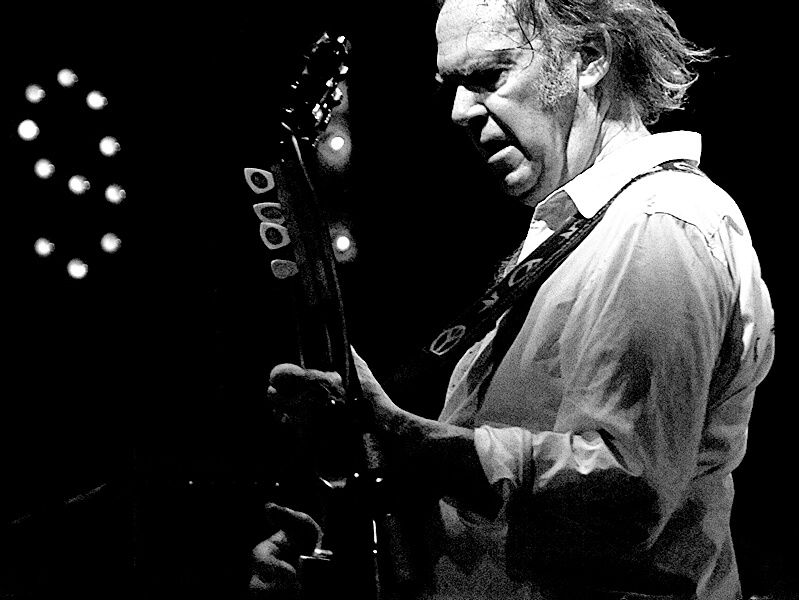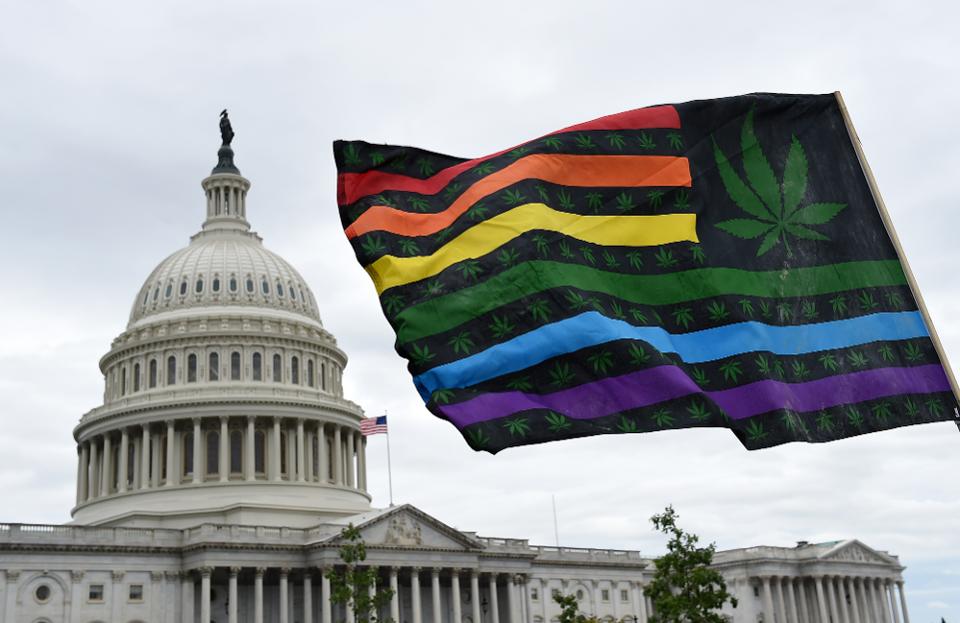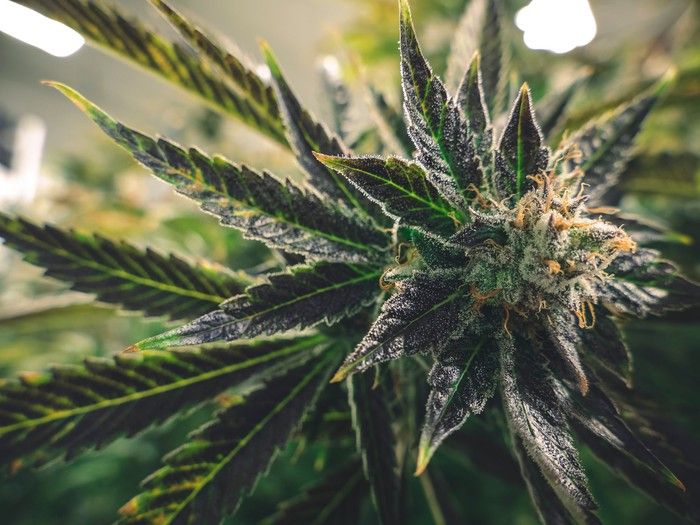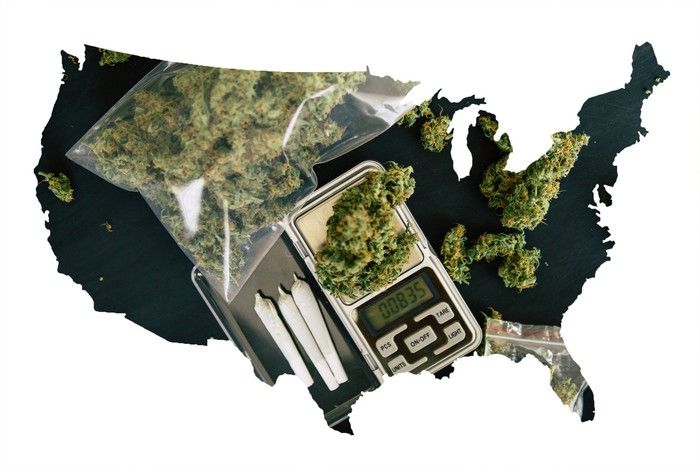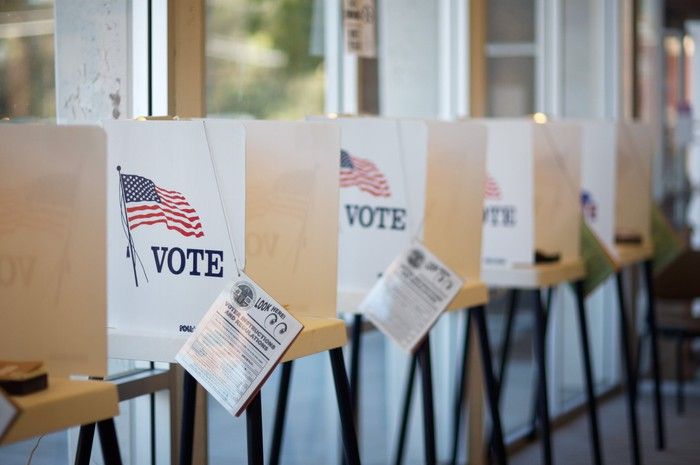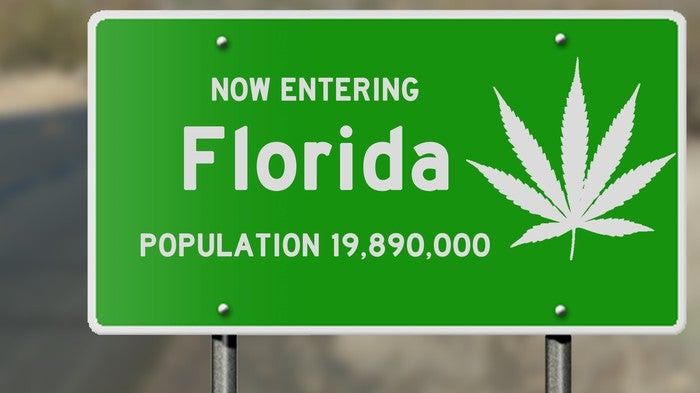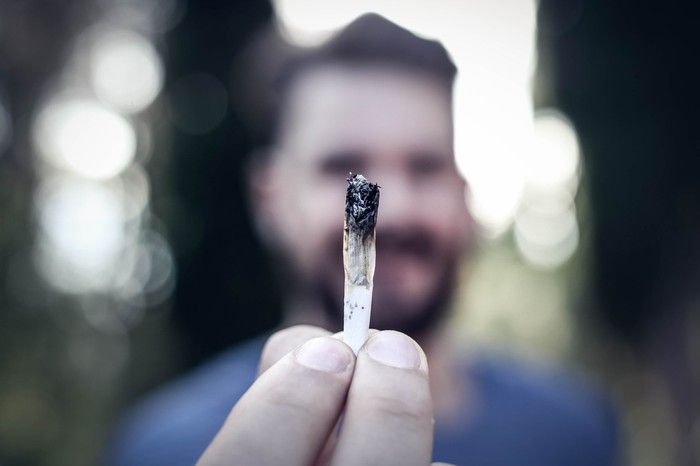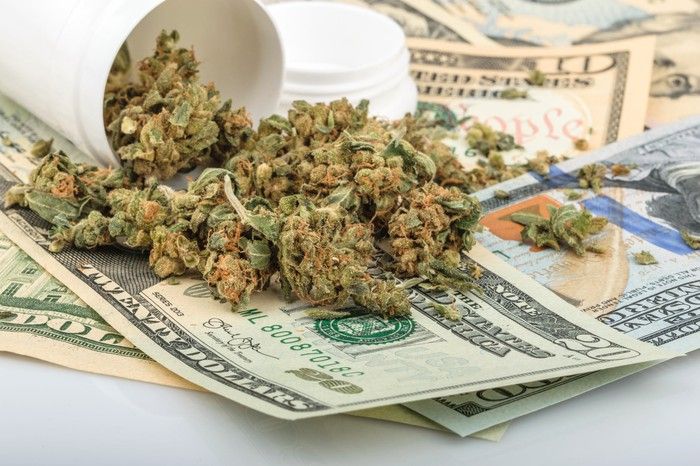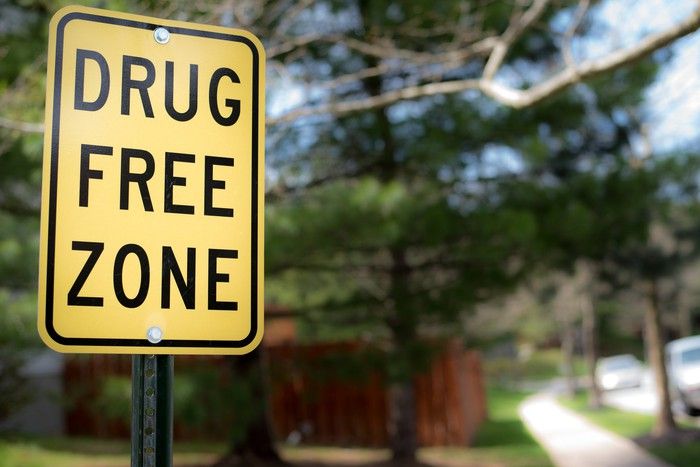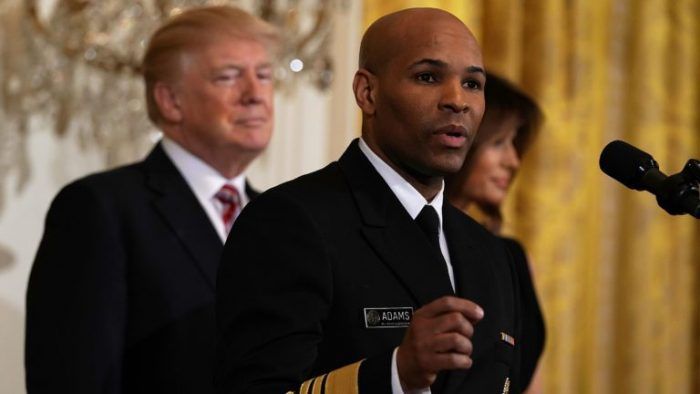These 2 States Are Sabotaging Their Respective Marijuana Industries
These billion-dollar markets are making it impossible for their cannabis industries to thrive.
At this time last year, the cannabis industry looked as if it would be practically unstoppable. Canada had just become the first industrialized country in the world to legalize recreational marijuana, and Wall Street was throwing out huge estimates on future industry growth. In fact, earlier this year, investment bank Stifel forecast $200 billion in annual global sales by the end of the upcoming decade.
But as you're probably aware, the cannabis industry hasn't been delivering the green as expected. The North American pot industry has encountered a slew of growing pains, with supply issues in Canada, and tax issues in select U.S. states, wreaking havoc on pot stocks.
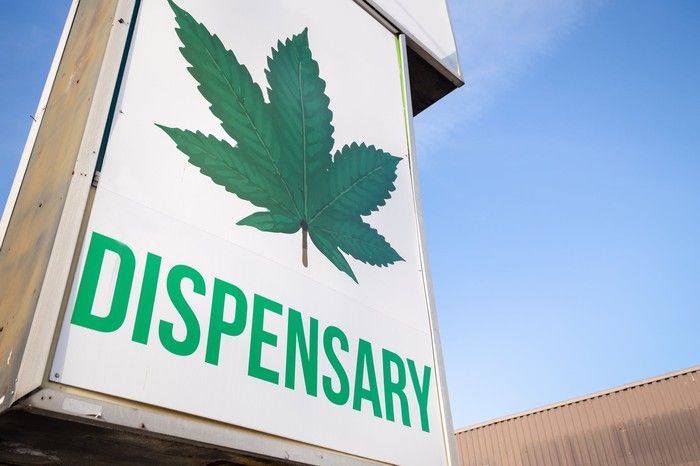
IMAGE SOURCE: GETTY IMAGES.
These states aren't giving cannabis companies an opportunity to succeed
One the most front-and-center problems in Canada on the supply front has to do with the slow rollout of physical dispensaries in select provinces. For example, Ontario, a province with a population of 14.5 million, has a mere two dozen open retail dispensaries at the moment. That's about one open dispensary for every 604,200 people in the province. By comparison, Oregon, which didn't set limits on retail licensing, has an open dispensary for about every 5,600 people.
You might be under the impression that the U.S. has observed these issues with Canada and is learning from these early stage mistakes that are hampering legal-channel sales. Unfortunately, that's not the case. There are two states that are sabotaging their respective cannabis industries due to their slow rollout of physical dispensaries.
California
When California residents passed Proposition 64 in Nov. 2016, it was expected that the crown jewel of the U.S. market would quickly generate more than $1 billion in annual tax revenue. However, in 2018, annual pot revenue in the Golden State actually declined by $500 million from the previous year, despite the fact that it opened its doors to recreational weed sales on Jan. 1, 2018.
High tax rates are definitely one problem in California. With the addition of an excise tax and wholesale tax, atop California's already robust state and local tax, the aggregate tax on legal marijuana can reach as much as 45%. This makes it very difficult for legal cannabis to compete with the black market on pricing.
But an arguably bigger problem for California is that it has so few open dispensaries throughout the state, and in key markets. Each municipality in the state has the option of deciding whether or not to allow retail dispensaries to open. Thus far, close to 80% of the state's jurisdictions have banned retail cannabis stores, thereby rolling out the red carpet to black market producers.
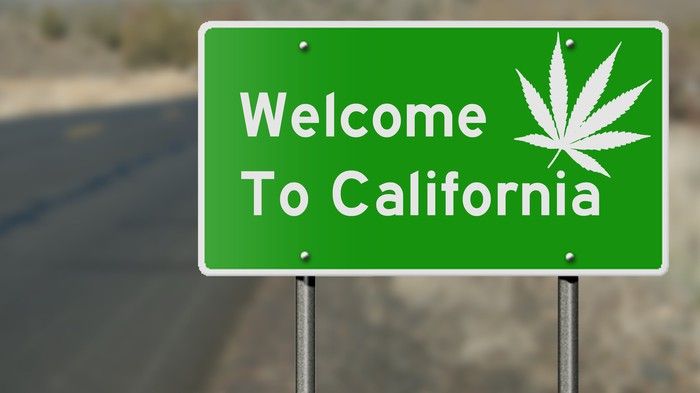
IMAGE SOURCE: GETTY IMAGES.
What's more, Leafly reports that, as of this past week, the Los Angeles City Council has asked for a redo on the assignment of 100 new licenses within the city. According to the Council, there's the belief that some applicants received access to their online license applications early, and that other aspects of the licensing process weren't fair. While it's unclear if this redo will actually materialize, what is clear is that far too few dispensaries are operating in Los Angeles.
Maybe the company most impacted by these issues in California is MedMen Enterprises (OTC:MMNFF). MedMen, which operates as an upscale multistate operator with more than a dozen open locations in California, should be seeing incredible growth in the crown jewel of the U.S. cannabis market. Instead, sequential quarterly sales growth came in at 5% in the third quarter and around 10% in the fourth quarter. Yes, the needle is pointing upward, but it's become very difficult for MedMen to compete against black market operators on the basis of price and geography -- there are just 1.5 open dispensaries in California for every 100,000 residents.
Illinois
Another state that's about to make life incredibly difficult for cannabis companies is Illinois.
In June, Illinois became the first state in history to legalize the recreational possession and sale of cannabis entirely through the legislative process. The new law may also allow nearly 800,000 residents to have their previous convictions for possession or use of cannabis expunged, assuming there was no violence associated with the conviction. With sales commencing on Jan. 1, 2020, the needle should be pointing green in the Land of Lincoln.
However, as pointed out by Marijuana Business Daily, Illinois' restrictive retail licensing approach that's designed to deter business monopolies and oligopolies may actually incentivize consumers to shop in the illicit market. You see, Illinois has capped the number of retail locations that can be opened by a single company at 10, once the green flag waves on recreational sales. That means a maximum of 110 retailers can sell recreational pot on Jan. 1, 2020. Even with regulators expected to award 75 new retail licenses by May 1, 2020, we're only talking about a maximum of 185 licenses in the state by the end of 2020. In other words, Illinois will also have about 1.5 open dispensaries per every 100,000 residents. That's about a tenth that of Oregon.
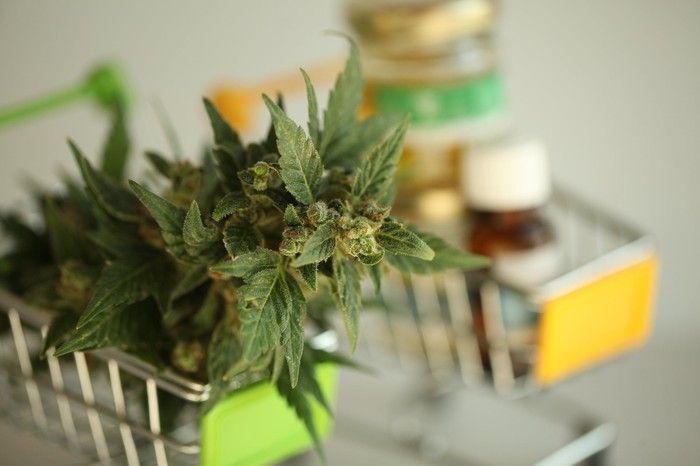
IMAGE SOURCE: GETTY IMAGES.
Looking out even further, the cannabis legislation passed by Illinois in June stipulates that the state cannot have more than 500 open dispensaries. In short, the state doesn't even have a chance to reach four open dispensaries per 100,000 residents.
And, consistent with California, Illinois' jurisdictions have the final say on whether or not to allow recreational weed retail stores. The expectation is that a number of more conservative parts of the Land of Lincoln will ban retail locations, thereby keeping licensed retailers from opening the maximum number of stores allowable by law.
If there were one company to single out here that should be concerned, it's Cresco Labs (OTC:CRLBF). Even though most eyes are on Cresco's pending acquisition of Origin House, the company is planning to have the maximum 10 open locations in Illinois by January. But with so few open retail locations, it's unclear if legal-channel pricing will be able to compete with the black market. Given how aggressive Cresco Labs has been in expanding its multistate presence, it's going to need a good showing from Illinois to drum up investor support. Unfortunately, this slow rollout of dispensaries suggests that the recreational pot market in Illinois may mature a lot slower than many folks realize.
These billion-dollar markets are making it impossible for their cannabis industries to thrive.
At this time last year, the cannabis industry looked as if it would be practically unstoppable. Canada had just become the first industrialized country in the world to legalize recreational marijuana, and Wall Street was throwing out huge estimates on future industry growth. In fact, earlier this year, investment bank Stifel forecast $200 billion in annual global sales by the end of the upcoming decade.
But as you're probably aware, the cannabis industry hasn't been delivering the green as expected. The North American pot industry has encountered a slew of growing pains, with supply issues in Canada, and tax issues in select U.S. states, wreaking havoc on pot stocks.

IMAGE SOURCE: GETTY IMAGES.
These states aren't giving cannabis companies an opportunity to succeed
One the most front-and-center problems in Canada on the supply front has to do with the slow rollout of physical dispensaries in select provinces. For example, Ontario, a province with a population of 14.5 million, has a mere two dozen open retail dispensaries at the moment. That's about one open dispensary for every 604,200 people in the province. By comparison, Oregon, which didn't set limits on retail licensing, has an open dispensary for about every 5,600 people.
You might be under the impression that the U.S. has observed these issues with Canada and is learning from these early stage mistakes that are hampering legal-channel sales. Unfortunately, that's not the case. There are two states that are sabotaging their respective cannabis industries due to their slow rollout of physical dispensaries.
California
When California residents passed Proposition 64 in Nov. 2016, it was expected that the crown jewel of the U.S. market would quickly generate more than $1 billion in annual tax revenue. However, in 2018, annual pot revenue in the Golden State actually declined by $500 million from the previous year, despite the fact that it opened its doors to recreational weed sales on Jan. 1, 2018.
High tax rates are definitely one problem in California. With the addition of an excise tax and wholesale tax, atop California's already robust state and local tax, the aggregate tax on legal marijuana can reach as much as 45%. This makes it very difficult for legal cannabis to compete with the black market on pricing.
But an arguably bigger problem for California is that it has so few open dispensaries throughout the state, and in key markets. Each municipality in the state has the option of deciding whether or not to allow retail dispensaries to open. Thus far, close to 80% of the state's jurisdictions have banned retail cannabis stores, thereby rolling out the red carpet to black market producers.

IMAGE SOURCE: GETTY IMAGES.
What's more, Leafly reports that, as of this past week, the Los Angeles City Council has asked for a redo on the assignment of 100 new licenses within the city. According to the Council, there's the belief that some applicants received access to their online license applications early, and that other aspects of the licensing process weren't fair. While it's unclear if this redo will actually materialize, what is clear is that far too few dispensaries are operating in Los Angeles.
Maybe the company most impacted by these issues in California is MedMen Enterprises (OTC:MMNFF). MedMen, which operates as an upscale multistate operator with more than a dozen open locations in California, should be seeing incredible growth in the crown jewel of the U.S. cannabis market. Instead, sequential quarterly sales growth came in at 5% in the third quarter and around 10% in the fourth quarter. Yes, the needle is pointing upward, but it's become very difficult for MedMen to compete against black market operators on the basis of price and geography -- there are just 1.5 open dispensaries in California for every 100,000 residents.
Illinois
Another state that's about to make life incredibly difficult for cannabis companies is Illinois.
In June, Illinois became the first state in history to legalize the recreational possession and sale of cannabis entirely through the legislative process. The new law may also allow nearly 800,000 residents to have their previous convictions for possession or use of cannabis expunged, assuming there was no violence associated with the conviction. With sales commencing on Jan. 1, 2020, the needle should be pointing green in the Land of Lincoln.
However, as pointed out by Marijuana Business Daily, Illinois' restrictive retail licensing approach that's designed to deter business monopolies and oligopolies may actually incentivize consumers to shop in the illicit market. You see, Illinois has capped the number of retail locations that can be opened by a single company at 10, once the green flag waves on recreational sales. That means a maximum of 110 retailers can sell recreational pot on Jan. 1, 2020. Even with regulators expected to award 75 new retail licenses by May 1, 2020, we're only talking about a maximum of 185 licenses in the state by the end of 2020. In other words, Illinois will also have about 1.5 open dispensaries per every 100,000 residents. That's about a tenth that of Oregon.

IMAGE SOURCE: GETTY IMAGES.
Looking out even further, the cannabis legislation passed by Illinois in June stipulates that the state cannot have more than 500 open dispensaries. In short, the state doesn't even have a chance to reach four open dispensaries per 100,000 residents.
And, consistent with California, Illinois' jurisdictions have the final say on whether or not to allow recreational weed retail stores. The expectation is that a number of more conservative parts of the Land of Lincoln will ban retail locations, thereby keeping licensed retailers from opening the maximum number of stores allowable by law.
If there were one company to single out here that should be concerned, it's Cresco Labs (OTC:CRLBF). Even though most eyes are on Cresco's pending acquisition of Origin House, the company is planning to have the maximum 10 open locations in Illinois by January. But with so few open retail locations, it's unclear if legal-channel pricing will be able to compete with the black market. Given how aggressive Cresco Labs has been in expanding its multistate presence, it's going to need a good showing from Illinois to drum up investor support. Unfortunately, this slow rollout of dispensaries suggests that the recreational pot market in Illinois may mature a lot slower than many folks realize.
